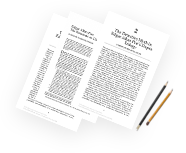In your post, address the following: To what extent would you agree with the view that research should rely on a relativist ethical position—rules or duties may vary across different communities and professional groups? What examples could you suggest to support this view? References: – Doing Research in a Business World text to read the following: Chapter 4, “Business Research Ethics.” – Israel, M. (2015). Avoid harm, doing good and seeking justice. In Research ethics and integrity for social scientists: Beyond regulatory compliance (2nd ed., pp. 123–146). Thousand Oaks, CA: Sage. – Israel, M. (2015). Informed consent. In Research ethics and integrity for social scientists: Beyond regulatory compliance (2nd ed., 79–101). Thousand Oaks, CA: Sage. – Easterby-Smith, M. (2004). Management research. In M. S. Lewis-Beck, A. Bryman, & T. F. Liao (Eds.), The SAGE encyclopedia of social science research methods. Thousand Oaks, CA: Sage. – Cheney, C., Christensen, L. T., & Dailey, S. L. (2014). Communicating identity and identification in and around organizations [PDF]. In L. L. Putnam & D. K. Mumby (Eds.), The SAGE handbook of organizational communication: Advances in theory, research, and methods (3rd ed., pp. 695–716). Retrieved from http://study.sagepub.com/sites/default/files/Mumby%20-%20CH28.pdf HHS.gov. (n.d.). Office for Human Research Protections. Retrieved from https://www.hhs.gov/ohrp/ – U.S. Department of Health & Human Service. (1979). The Belmont report. Retrieved from https://www.hhs.gov/ohrp/regulations-and-policy/belmont-report/index.html
#Relativist #Ethical #Position




